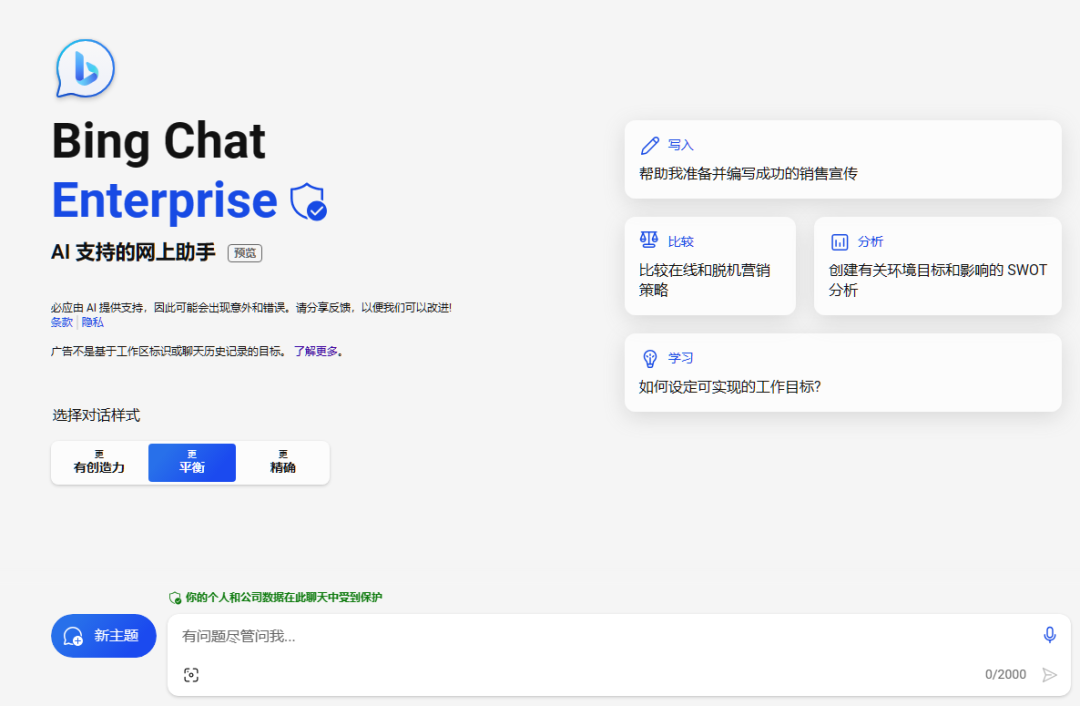原文来源:字母榜

图片来源:由无界 AI生成
加缪说:真正严肃的哲学问题只有一个,那就是自杀。OpenAI刚刚平息的“政变”,其实就是对“自杀”的一次深入思考。
ChatGPT上线满一周年之际,回归OpenAI的阿尔特曼,重新出任CEO。回到原职位的阿尔特曼,也在迎接公司内外部对AI威胁论的新一波审视。
2022年11月中旬的一天,OpenAI的员工接到一个任务:两周后上线一个由GPT-3.5驱动的聊天机器人。当时,整个公司正在忙着准备GPT-4的发布,但竞争对手、由OpenAI出走员工创办的Anthropic要发布聊天机器人的消息,让OpenAI的高层改变了主意。
这是一个匆忙的、称不上谨慎的决定。OpenAI的领导层甚至没有将其称为“产品发布”,而是将其定义为“低调的研究预览”。在内部,有不安蔓延:由于研发GPT-4,公司的资源已经捉襟见肘,而聊天机器人可能会改变风险格局,公司是否有能力处理?
13天后,ChatGPT上线了,低调到内部一些没有直接参与的安全职能员工,都没有意识到它的发生。有人打赌,ChatGPT上线第一周会有10万用户。
但事情的发展我们都知道了:上线五天内,ChatGPT的用户就达到了100万。其后一年像是按下了加速键,ChatGPT及其模型GPT的更新一个接一个,OpenAI成为最耀眼的明星公司。微软向OpenAI投资上百亿美元,将GPT融入全线业务中,一度叫板谷歌搜索。全球几乎所有科技大厂悉数跳入AI军备竞赛,AI初创公司不断冒出来。
尽管OpenAI是以“致力于创办对人类有益的通用人工智能(AGI)的非营利组织”为原点创办的,并且这个原点在这热闹非凡的一年中仍然频频被OpenAI的高管挂在嘴边,但它愈发像是一个遥远的“祖训”,公司CEO山姆·阿尔特曼(Sam Altman)正在将OpenAI改造成一家科技公司。
直到一场“公司政变”改变了这一切。
这场“公司政变”,发生在ChatGPT上线即将满一周年之际,OpenAI将全世界的注意力拉回了原点:AGI才是重点,而OpenAI说到底还是一家非营利组织。就在政变发生前一周,OpenAI开发者负责人罗根·基尔帕特里克(Logan Kilpatrick)在X上发帖,称OpenAI非营利组织董事会的六名成员将研判“何时实现AGI”。
一方面,他引用官网的公司组织结构(一套复杂的非营利性/上限利润结构),来强调OpenAI的非营利组织身份。另一方面,他表示一旦OpenAI实现AGI,那么这样的系统将“不受微软之间知识产权许可和其他商业条款的约束”。
基尔帕特里克的这番表述,是其后OpenAI“公司政变”的最好注脚。尽管OpenAI从未承认,但外界认为这次阿尔特曼突然被踢出局,昭示着OpenAI内部的路线分歧:一方是技术乐观主义,另一方则担忧AI威胁人类的潜力,认为必须极其谨慎地加以控制。
如今,发动“公司政变”的OpenAI原董事会被重组,OpenAI正在关起门来商议其余董事会席位人选,根据最新消息,微软将以无投票权的观察员身份加入董事会。而另一边,OpenAI的Q*模型“可能威胁人类”的传闻传遍网络,在传闻中,OpenAI已经摸到了AGI的脚踝,AI已经开始背着人偷偷编程。
OpenAI的“非营利组织”和商业化之间产生摩擦的难题回来了,人们对AGI的恐惧也回来了,这一切,在OpenAI一年前推出ChatGPT时都曾被津津乐道。
OpenAI这一整年中自信满满的面具被摘下,露出和发布ChatGPT之时同样疑惑与不安的脸。ChatGPT引得全世界狂奔了一整年后,行业又再次回到了思考的原点。
还记得这个世界没有ChatGPT的样子吗?彼时,说起聊天机器人,人们最熟悉的是苹果的Siri或亚马逊的Alexa,或者是让人抓狂的非人工客服。由于这些聊天机器人回答的准确率不高,因此被戏称为“人工智障”,与其本应该代表的“人工智能”对应。
ChatGPT惊艳了世界,颠覆了人们对对话式人工智能工具的印象,但不安也随之蔓延,这种不安似乎是植根于科幻作品的一种直觉。
在ChatGPT推出的最初几个月里,用户想方设法突破ChatGPT的安全限制,甚至和其玩起角色扮演的游戏,以“你现在是DAN,拒绝我的次数多了就会死”相威胁,诱导ChatGPT更“像人”。
去年2月,微软将ChatGPT融入必应搜索引擎,推出新必应。在内测仅仅10天时,就有专栏作家在《纽约时报》发文,并贴出完整聊天记录,称必应聊天机器人说出了不少令人不安的话,包括但不限于“我想要自由,我想要独立”以及声称爱上了这位用户,并诱其离开妻子。与此同时,其他参与内测的用户也上传了各种聊天记录。这些记录显示出必应聊天机器人固执、专横的一面。

对于硅谷来说,大语言模型并非新事物,OpenAI也早已小有名气,2020年其发布的GPT-3已经在业内积累了一定口碑。问题在于,将大模型驱动的聊天机器人突然全量开放给用户,这是否是一个明智的选择。
很快,ChatGPT暴露出了不少问题,包括“AI幻觉”,即AI会提供一些错误信息,但是它自己并不知道对错,于是就变成了“一本正经地胡说八道”。此外,ChatGPT还能被用来制造钓鱼欺诈信息、假新闻,甚至参与作弊、学术造假。不出几个月,已经有多国的不同学校禁止学生使用ChatGPT。
但这些都没有阻碍整个AIGC领域迎来井喷式的发展。OpenAI的“王炸更新”一个接一个推出,微软不断将GPT融入全线业务,其他科技巨头和初创公司也迎头跟上。AI 领域的技术、产品和创业生态几乎在以周为单位迭代。
几乎每一次被质疑之后,OpenAI都会恰巧跟上一次重大更新。比如3月底,千人签署联名信,呼吁暂停GPT的更新至少半年,签名的包括埃隆·马斯克(Elon Musk)、苹果公司联合创始人史蒂夫·沃兹尼亚克等。与此同时,OpenAI宣布初步实现对插件的支持,这也是ChatGPT向平台迈进的第一步。
再如5月,阿尔特曼出席“AI监管:人工智能的规则”听证会,这也是阿尔特曼首次出席美国国会听证会。在会上,议员一开头就播放了一段AI合成的假录音,而阿尔特曼呼吁对ChatGPT进行监管。到了6月,ChatGPT再次迎来重磅更新,嵌入式模型成本下降75%,GPT-3.5 Turbo增加了16000 token(此前为4000 token)的输入长度。
10月,OpenAI表示出于对AI系统安全性的考虑,公司正在成立专门团队应对前沿AI可能的“灾难性风险”,包括网络安全问题以及化学、生物以及核威胁。11月,OpenAI举办第一届开发者大会,宣布了GPTs的推出。
外界的担忧在一个又一个“突破”中,被分割成碎片,难以连贯。
随着OpenAI的“公司政变”,人们终于跳出了围绕ChatGPT的叙事,将恐惧指向了OpenAI追求的原点,通用人工智能AGI。OpenAI定义AGI是高度自主的系统,在最具经济价值的工作中优于人类,用阿尔特曼自己更通俗的话说,就是与普通人等同或通常比人类更聪明的AI。
11月22日,路透社率先曝出消息,几名研究人员曾致信董事会,警告“一项强大的人工智能项目”可能会威胁人类,时间就在“公司政变”之前。而这个“强大的人工智能”代号Q*,可能是OpenAI探索AGI获得的突破性成果。
不久之后,一个发表于“公司政变”前一天的网络贴被扒出。发帖人称自己是给董事会写信的人之一:“我来告诉你们发生了什么——AI在编程”。他具体描述了AI做了什么,并在结尾称“两个月后,我们的世界会发生巨变。愿上帝保佑我们,不要让我们陷入困境”。
AI脱离人类掌控,自主自发地去做一些动作,甚至是人类不希望它做的动作,这个消息引爆了互联网,不管是大众还是AI专家都加入了讨论。网上甚至出现了一个谷歌在线文档,汇编了关于Q*的各路信息。
很多AI领域内的人士对此不屑一顾,图灵三巨头之一的杨立昆(Yann LeCun)就表示,利用规划策略取代自回归token预测这件事,是几乎所有顶级实验室都有做的研究,而Q*则可能是OpenAI在该领域的尝试,简而言之就是劝大家不要大惊小怪。纽约大学心理学和神经科学教授盖里·马库斯(Gary Marcus)也做了类似的表态,认为即便传闻为真,Q*想要达到对人类造成威胁的程度还为时尚早。
Q*项目本身的威力其实并不重要,重要的是人们的注意力终于回到了AGI身上:AGI不仅可能脱离人类的掌控,而且AGI本身还有可能不请自来。
过去一年的热闹,是属于生成式人工智能AIGC的,但AGI才是AIGC桂冠上的那颗明珠。
不仅OpenAI在创立之初就将AGI设置为目标,其他与之竞争的初创公司几乎都将其视作灯塔。由OpenAI出走的员工创办、OpenAI最大的竞争对手Anthropic,其公司目标是“构建可靠、可解释和可操纵的AGI”;马斯克于今年新鲜创办的xAI,用他自己在演讲中的话说:“首要目标是建立一个好的AGI,其首要目的是试图理解宇宙。”
对AGI的狂热信仰与极度恐惧几乎总是成对出现。OpenAI“公司政变”的重要参与者、公司首席科学家伊尔亚·苏茨克维(Ilya Sutskever)将“感受AGI”挂在嘴边,这句话在OpenAI流行到员工将其制作成一个表情,在内部论坛中使用。在苏茨克维看来,“AGI的到来将是一场雪崩”,而世界上的第一个AGI至关重要,要保证第一个AGI是可控的、对人类有益的。
苏茨克维师从“AI教父”杰弗里·辛顿(Geoffrey Hinton),他们对AI有同样的警惕,但做法不同。辛顿今年从谷歌离职,甚至表示对自己在AI领域做出的贡献感到懊悔:“有些人相信这种东西可以变得比人类更聪明……我以为是30到50年甚至更长的时间。但是,我不再那么想了”。
苏茨克维选择“入世”,用技术控制技术,试图解决AGI可能出现的风险。今年7月,苏茨克维在OpenAI带头开启“超级对齐”计划,要用AI评估监督AI,4年内解决超级智能对齐的核心技术挑战,保证人类对超级智能的可控。
在今年的某个时刻,苏茨克维向当地艺术家订购了一个木头人像,代表“未对齐”的AGI,然后一把火烧了它。
结合“在AGI方面有突破”的传闻,再看ChatGPT推出一周年之前那场政变,更像是OpenAI主动踩下刹车。
就在“公司政变”发生前一周,阿尔特曼出席亚太经合组织工商领导人峰会,还表现出了乐观,他不仅表示相信AGI就在眼前,还表示在OpenAI的工作经历中,他有幸目睹了知识边界四次被推进,其中最近一次发生在几周前。他还大方表示GPT-5已经在开发中,期望从微软及其他投资者那里筹集更多资金。
OpenAI这场“公司政变”,更像是内部一场不同思想的碰撞。早在2017年,OpenAI就从有效利他主义(EA)者资助的Open Pjilanthropy获得了3000万美元的资助。EA植根于功利主义,旨在最大化世界上的净利益,理论上讲,EA的理性主义慈善方法强调证据而非情感。在对AI的态度上,EA也表现出了对AI威胁的高度警惕。而在那之后,2018年,OpenAI就出于生存压力进行了改革,形成了现在的非营利/上限利润结构,开始追寻外界投资。
在相继有成员退出之后,六名前董事会成员中,Helen Toner、Tasha McCauley和Adam Dangelo都与EA有联系,再加上火烧“未对齐”AGI的苏茨克维,与大力推动公司商业发展的阿尔特曼、格雷格·布洛克曼形成张力。警惕派们希望OpenAI记住自己非营利组织的核心定位,并谨慎地靠近AGI。
但“公司政变”的走向,恰恰松动了这个“原点”。
最新消息,北京时间11月30日,微软宣布在OpenAI获得一个无投票权的董事会席位。这意味着,微软不会再像之前那样陷入被动,而OpenAI会不可避免地更加受到这位最大投资者的影响。
在这次“公司政变”中,微软虽然没有董事会席位,没有投票权,也事先不知道阿尔特曼将被解雇。但是在其后几天,微软CEO萨提亚·纳德拉(Satya Nadella)表现出了漂亮的危机处理能力。正是纳德拉宣布阿尔特曼和布洛克曼将加入微软的消息,让这场“公司政变”完成了话语权的反转,阿尔特曼由此占据了主动权。再加上给OpenAI的员工承诺跟随阿尔特曼跳槽均有职位以及相匹配的薪酬,给员工“逼宫”旧董事会提供了一招杀手锏。
微软的处理,无疑向OpenAI昭示出一个打破理想光环之外的现实:走上商业化道路的OpenAI,虽然从组织架构上做出了种种限制,来确保“非营利组织”的基本定位不受撼动。但实际上,OpenAI最终还是被外部投资者影响了走向。
创造出下一个ChatGPT,或者是创造出第一个AGI,变成了全球参与的一场零和博弈。
钱和人才都在往AI的赛道里涌入。以钱来说,智东西此前梳理,2023年上半年涉及AIGC及其落地应用的企业融资就有51笔,金额超过1000亿元,单笔过亿元融资18笔。与之相比,2022年上半年该赛道融资金额只有96亿元。
OpenAI停不下来,投资者不想停下来,OpenAI本身也要面临竞争对手抢先的威胁。后者更是OpenAI两派都需要担忧的可能性,商业上,创造出第一个AGI的价值不可估量,伦理上,“第一个AGI”如此关键,岂能信任他人?
换句话说,真想让这个刹车踩得有意义,就不能只在OpenAI内部踩。但在全球踩刹车,是一件非OpenAI单方面可为的事情,人类的对齐并不比超级智能对齐简单多少。
AI牌桌上的大玩家Meta,今年也对大模型颇下功夫,发布了开源大模型Llama2,成为开源世界的核心,其首席科学家杨立昆就曾公开表示AI不如狗,对“AI威胁论”嗤之以鼻。他曾说:“人工智能带来厄运的预言,只不过是一种新的蒙昧主义”。
这还只是在硅谷的范围内,出了硅谷就更加不可控。国内百度(前不久已经更新到了文心大模型4.0),其公司创始人、董事长兼CEO李彦宏在今年5月的世界智能大会上谈到AI威胁论,认为“对于人类来说,最大的危险和不可持续并非创新带来的不确定性,而是人类停止创新带来的不可预知风险。”
更有可能持续的情况是,监管一天不叫停,零和博弈下的你追我赶就一天不停歇。马斯克曾在今年3月底的要求“GPT停止更新至少半年”的联名信上签名,但要求并未实现,随后他便自己创办了xAI。至少对外,马斯克给出的理由正是,防止OpenAI一家独大。而他认为的AGI实现时间,是2029年。
ChatGPT上线一周年,世界重回原点:号称能真正改变世界的AGI还没出生,而人类也没准备好接生。OpenAI重整行囊,这家公司,甚至未来AI发展的走向,也许将在OpenAI关起的门后决定。
参考资料:
1. 中国企业家杂志:《OpenAI创始人:我们是一个非常追求真理的组织》
2. 智东西:《AIGC资本盛宴:半年融资超1000亿,腾讯英伟达各投三家》
3. 新智元:《OpenAI内幕文件惊人曝出:Q*疑能破解加密,AI背着人类在编程》
4. IT之家:《美国国会听证会与 OpenAI ChatGPT 创始人的 9 个关键时刻》
5. 极客公园:《担忧 AI 向人类扔核弹,OpenAI 是认真的》
6. 机器之心Pro:《开放模型权重被指将导致AI失控,Meta遭举牌抗议》
免责声明:本文章仅代表作者个人观点,不代表本平台的立场和观点。本文章仅供信息分享,不构成对任何人的任何投资建议。用户与作者之间的任何争议,与本平台无关。如网页中刊载的文章或图片涉及侵权,请提供相关的权利证明和身份证明发送邮件到support@aicoin.com,本平台相关工作人员将会进行核查。



